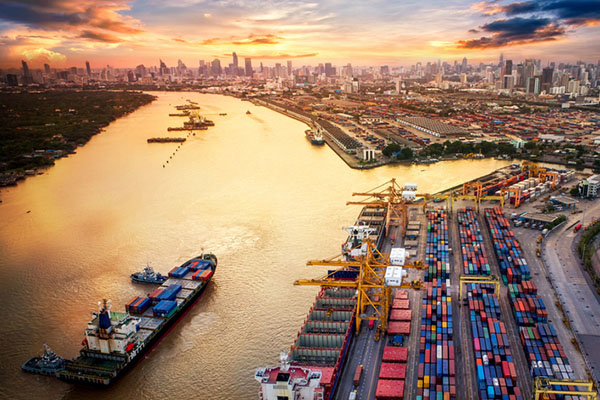Panjiva reports rapid rate of decline for U.S.-bound waterborne shipments in October
While United States-bound waterborne shipments have beared the brunt of the United States-China tariff-driven “trade war,” October data issued by global trade intelligence firm Panjiva represented its worst monthly output going back to March 2016, or three and a half years, in absolute terms, when there was a 19.4% decline.
When putting aside the volatility due to the Lunar New Year, which had a major impact on March 2016 imports, Panjiva said that October was the worst month for U.S.-bound imports going back to November 2009, which was down 8.9%.
October shipments, at 1,047,257, were off 8.9% annually on a preliminary basis, which was far steeper than September’s 1.6% annual decline and the third quarter’s 0.2% gain. Containerized freight shipments in October rose 7.5 On a year-to-date basis through October, shipments are up 0.05%, at 10,301,352.
“What we saw in October is the outcome of kind of what we have been concerned about, in terms of the Trump administration’s tendency to use tariffs, with the threat becoming a reality in July 2018, when the first round of tariffs were applied,” said Chris Rogers, Panjiva research director. “And in October we really saw the full power of what tariffs can do to international trade. October is a culmination of all of that. That is seen in the slump in imports from China. The worrying part is that it is not just imports from China that have fallen. Imports from Taiwan are falling at a faster rate, as well as South Korea, the European Union, India. These are all areas where we are seeing declining imports.”
While shipment declines have been impacted by the ongoing U.S.-China trade war, Panjiva observed that the most recent round of “list 4A tariffs will have taken a toll for the first time,” as evidenced by October imports from China, including Hong Kong, saw an 18.9% annual decrease, with shipments from China falling for the sixth consecutive month.
Along with China, imports from other nations also were off in October, with shipments from Taiwan and South Korea off 8.9% and 7.9%, respectively, and Asia, excluding China up 1.5%.
On the other end, Vietnam continued to reap the benefits of the U.S.-China trade war, with October U.S.-bound shipments up 22.4%. But Thailand only saw a 1.4% boost, and India was down 2.5%, and Europe saw a 2.8% decline, with Panjiva pointing out that there may be a “lull in demand as well as tariff-related timings,” too.
Looking at shipment HS-2 categories, Panjiva reported energy was up 3.8% in October, with consumer lines impacted by list 4A tariffs and the previous list 3 tariffs increases, in the form of furniture imports off 12.2%, the fourth consecutive month of declines since tariffs rose in May, apparel down 12.4%, and toys, which Panjiva noted are not subject to duties until December, off 10.3%.
Industrial shipment levels also saw October declines, with machinery and electronics off 12.9%, following a 4.3% September decline, and Chemicals off for the eighth time in the last nine months, falling 10.5%.
Panjiva’s Rogers said while some of the current import challenges are about the trade war, they are not just about the trade war, too, as part of it is also related to the global economic slowdown.
Looking ahead to the remainder of the fourth quarter, Rogers said that there is a strong likelihood U.S.-bound import numbers will look even worse than they currently are.
“The reason for that is that last year there was a bubble in shipping, as companies rushing in imports to beat tariffs that were threatened for January,” he said. “That led to a November and December bubble. We are now hitting a period in which annual comparisons will be artificially inflated but not worse, even though they will look worse.”
If the U.S. and China inch closer to and reach a trade deal, Rogers said it has the potential to stop the rate of future tariffs and might even roll back existing ones, at a time when trade data will likely be at its worst, due to expected difficult annual comparisons over November and December.
“The fundamental position will depend on what a possible U.S.-China trade deal looks like,” he said.
In early 2020, with the Lunar New Year in January rather than late February last year, Rogers said that is likely to distort import figures.













